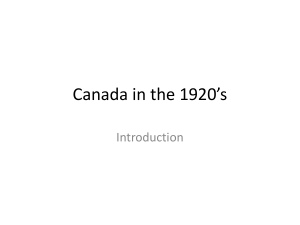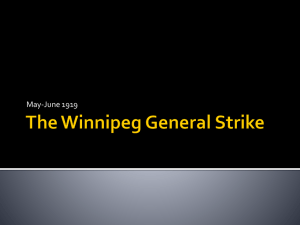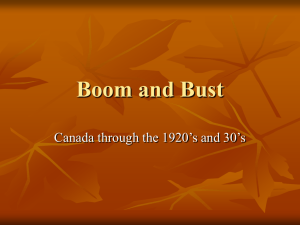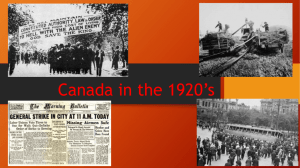Post War Canada
advertisement
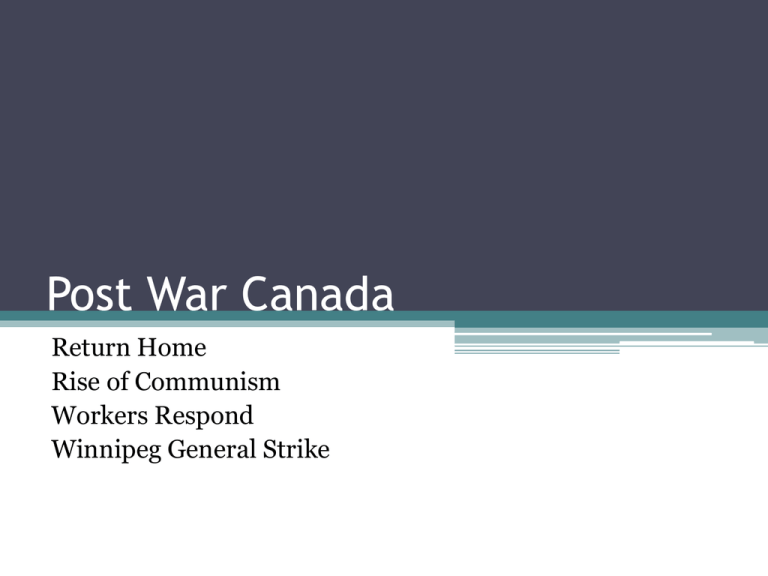
Post War Canada Return Home Rise of Communism Workers Respond Winnipeg General Strike Soldiers Return Home • An Uneasy Adjustment - Few support services (physically and mentally wounded) - Few jobs Dissatisfied Workers • Many Canadians agreed to low wages as part of their patriot duty for the war effort • After the war - Inflation caused major problems as wages no longer covered the cost of rent and food Workers demanded more Money! Rise of Communism • After WWI people around the world dissatisfied about rich and poor divide • 1917 Bolshevik Revolution in Russia • Under Communism: - All means of production and distribution are publically owned - No private ownership of business or land Communism in Canada • Never gained widespread support • BUT... • The ideas of these revolutionaries inspired Canadian workers to try to improve working conditions Worker’s Demands • - 3 main demands of workers Higher wages Better working conditions The right to join unions • These demands resulted in numerous strikes across Canada - 4 years of labour wars in Eastern Canada One Big Union • Labour Union founded at the Western Labour Conference March 1919 - To represent all Canadian workers • Goal - To help workers gain more control of industry and the government through peaceful means • Main Weapon - The general strike, a walk out by all employed workers Winnipeg General Strike 1919 • Post war labour disputes peaked in Winnipeg - The financial center and largest city in Western Canada • Metal and Building trade workers demanded - Higher wages - Shorter work week - Right to collective bargaining May 1919 Negotiations Broke Down • Winnipeg Trades and Labour Council voted for a General Strike - 30 000 people - Crippled the city • Sympathizers joined the strike - Firefighters, post Office, transport, communication Opponents of the Strike • Opposed bargaining with strike leaders • Feared trade unions would lead to a communist uprising like in Russia - Red Scare!! Citizen’s Committee of 1000 • Anti Strike Organization • Saw the union leaders as part of a communist conspiracy to overthrow the government • Convinced City leaders to fire the police and replaced them with special task force Federal Intervention • Federal Government feared protest could spread • Changed the Criminal Code of Canada - Foreign born strike leaders could be arrested and deported without trial (anyone who was believed to be starting a revolution) Bloody Saturday June 21 1919 • Strikers parade to protest firing of police and special task force creation • Royal NWMP and task force charged the crowd resulting in a clash • 1 striker died, 30 wounded, and many arrested Defeated Strikers • Returned to work after 43 day strike • 7 arrested leaders served 2 months to 2 years in prison • Many not rehired or had to sign contract promising to never join a union • Royal Commission investigation found that strikers complaints valid J.S, Woodsworth • Social reformer arrested during the strike • Formed the Co-Operative Commonwealth Federation • Became the New Democratic Party

